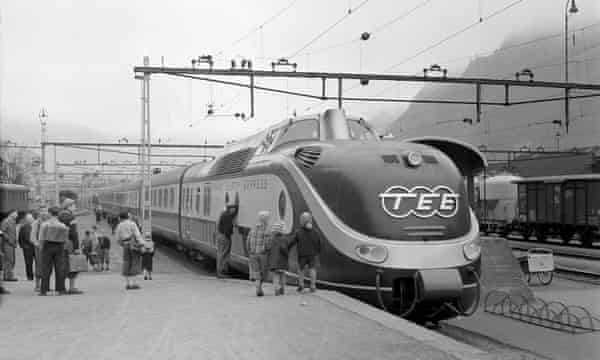Why Europe Is Going Back To Electric Trains Of The 70s?
Looking at the eminent threat that the environment poses on the sheer existence of the human race, a joint consortium of European nations are opting to go back to the TEE

The traditional electric powered TEE provided only first class service between
major capital cities of Europe
Europe continues to find ways and means to reduce the carbon emission rates. For this, the bloc has finally decided to revive the Trans Europe Express (TEE), that it believes can significantly reduce the carbon emission rates.
The doing away of the coal engine was a sure shot way to reduce the gas emissions that would happen due to combustion. As mankind has continued to burn wood or use coal to meet its heating needs, the amounts of emissions have also multiplied that much more. Now, the resurrection of the service that ran in the 1960s is being seen as a great way to reduce the carbon emissions.
The Trans Europe Express, as the name suggests, ran between major European country states. As short haul flights and then connecting ones increased, it became easy and fashionable to use them instead. Little was anyone thinking that emission rates from jet fuel would significantly effect the air quality, in years to come.
Due in large part to the growth of short-haul flights, 149 of the 365 cross-border rail links that once existed in Europe were non-operational in 2018, with rail now accounting for only 8% of all passenger travel in EU member states.
As usual, the innovative idea has been spearheaded by Germany- a country that has been known for its innovations and creative ways to reduce pollution. According the German transport minister, Europe could see a new revival of the old system, in full throttle from 2025. The idea has received a nod from countries like Poland, Germany, France and Spain. Climate related innovations has become the need of hour. It is going to threaten the mere survival of the human race, if we don't do something about it sooner.
A join report by these countries has already decided the road map to connect the major capital cities. The train provided a first class experience only and had to go off commission due to the loss in running major routes, besides a forced expense of paying track access charges.
Facts have proven than infact, intra-European flights on distances less than 1,000km (621 miles) are estimated to create 28 million metric tonnes of CO2 every year. Seventeen of the 20 most frequented air routes in Europe are for distances less than 700km (434 miles).
The currently proposed routes could comprise direct rail connections between Warsaw-Vilnius, Warsaw-Prague, Berlin-Copenhagen, Berlin-Brussels, Berlin-Paris, Paris-Madrid and Madrid-Lisbon.
Comments
Post a Comment